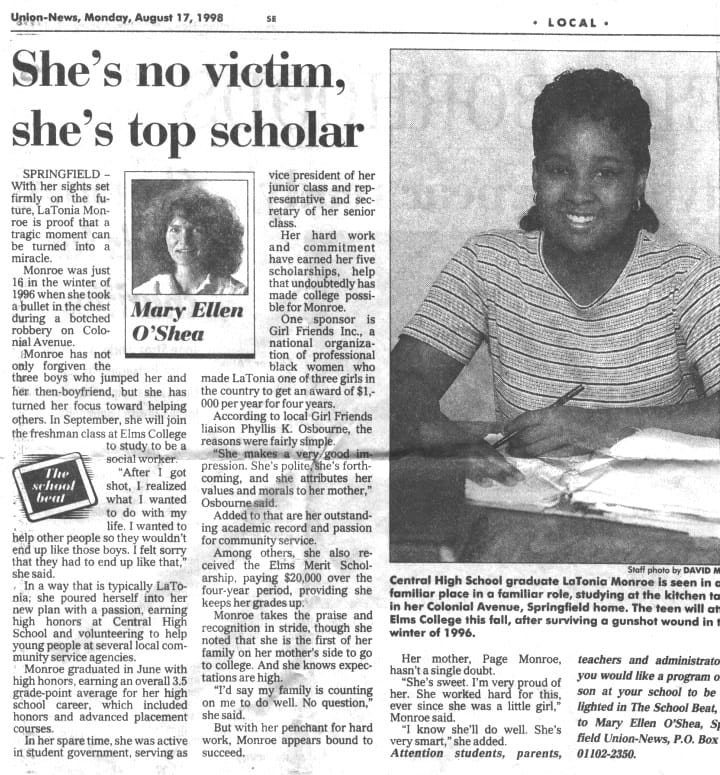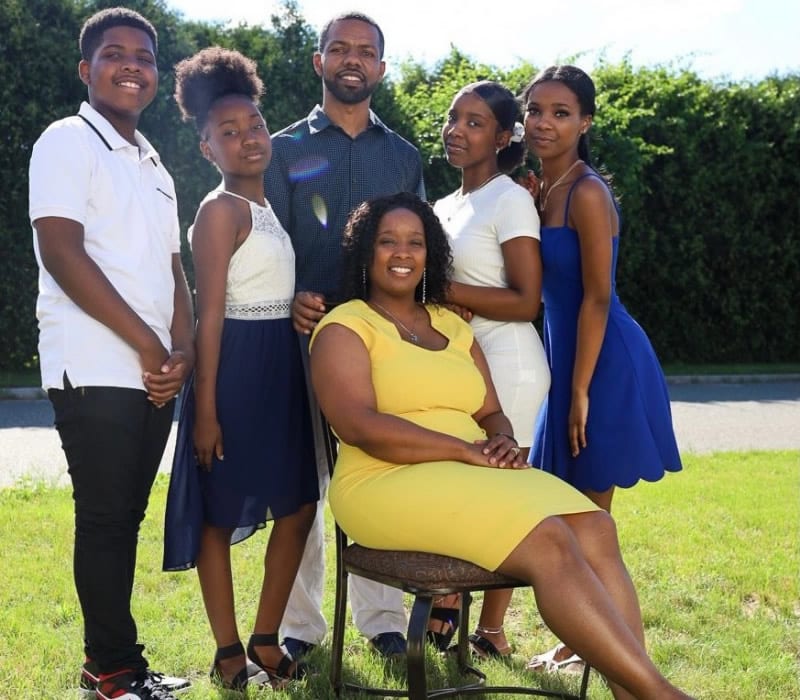June 25, 2021 Community Stories
Five Questions for LaTonia Monroe Naylor, Past Community Foundation Scholarship Recipient
Twenty-three years ago, LaTonia Monroe Naylor of Springfield received college scholarships—including a multi-year scholarship from the Community Foundation’s African American Achievement Fund—to attend Elms College. Now, she is the president and CEO of Parent Villages, serves on Springfield’s School Committee, and is a voice for educational reforms and racial equity in her many community roles. We asked LaTonia to reflect on her academic and career journey. Her responses are below.
How did scholarships impact your life?
“I don’t know if I would have been able to go Elms if I didn’t get scholarships. I left college with only $5,000 in debt. I paid that off within the first year of working. It allowed me to step into adulthood and not be stressed because I didn’t have too much debt. Also, people had invested in me, and I couldn’t let them down. People believed I was able to do college work, so I committed to it. Lots of times I made the decision not to go out with friends and maybe end up losing my scholarships. If my grades dropped, I risked not getting some of the money, and I couldn’t afford that.”
Education has become your life’s work. What influenced that career choice?
“When I was 16, some guys tried to fight my friend and a gun went off. I was shot in my chest. I believed it was the grace of God I didn’t die. I made up my mind I was not going down the path those guys went down. I don’t know how I came up with this at 16, but I was like, ‘Maybe it’s because they’re hungry or maybe it’s because they all dropped out of high school…Maybe if we improve our education system and improve the supports for kids, then they won’t have to make those kinds of choices.’ I decided I was going to serve and help people. I didn’t know I was going to end up in education per se, but I knew it was going to be my ticket out of where I lived. Also, my Nana dropped out of school to provide for her family. She was adamant I go to college, and I wanted to be an example for my younger siblings.”
You have spoken of the importance of mentors. How have mentors made a difference for you?
“I had a village helping me, but two people stand out: Dora Robinson and Attorney Bill Christie. I met Dora when I was a kid at the MLK Family Center and later she was my professor at Elms College. She’s been a huge mentor to me throughout my whole professional life. Bill doesn’t even know he was a mentor to me. I never got a chance to tell him ‘thank you.’ He was influential because I’ve had mentors who looked like me, but he was a white man who didn’t have to seek me out or help me. Yet, he did. He came to Central High School when I was a student and he gathered 10-12 of us together. He said, ‘You’re the scholars.’ He talked with us about Bowdoin College and its great opportunities. We got to go there. It was my first time going out of state without my family. I remember thinking, ‘Wow, I could do this.’”
On parenting and education
“We were very intentional about education being a focal point for our kids—we still are. Teaching them, making sure they have every opportunity, doing research, pushing them whenever we have to. My husband took a lot of the responsibility for making sure they were read to and knew their letters, because my job was in Connecticut then. He’s a master barber and he would bring the kids to work with him. He had a little area set up with their books.”
You’ve said you would like people to know what it’s like to be a Black woman in America today. Please tell us.
“Being a Black mother in America is the most challenging experience, because I am deeply concerned about my kids every day. I’m especially concerned about my son every time he goes out the door. I worry about his safety and about police interactions. It’s part of my own trauma. And I feel like the stress and the pressure that we deal with is untold, unmerited, and unvalued. A lot of people say they get it, but they really don’t. I have to do everything twice as hard and twice as effectively as many of my counterparts in order for me to be seen. Many times I stretch myself more than I probably should, but I want to make sure my kids understand they can achieve whatever they desire and can do better than me.”
Some responses above have been lightly edited for space reasons. Photos courtesy of LaTonia Monroe Naylor.


